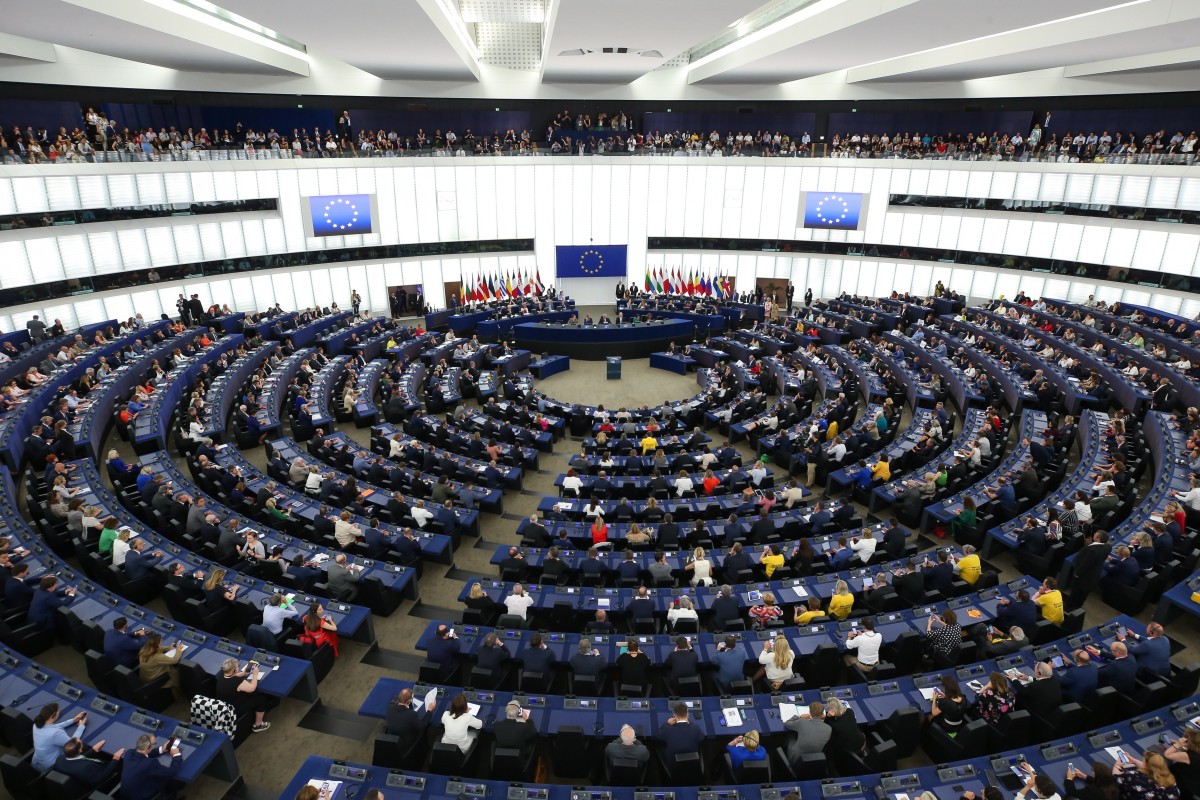A short overview of the September plenary session
STRASBOURG, 23 September 2019—The European Parliament continued its regular work with the first plenary session after the summer break held on September 16–19 in Strasbourg, France. Presided over by the Italian MEP David Maria Sassoli, the agenda was very diverse and the plenum saw a number of votes and debates on all kind of issues, from the EU Commissions statement for the upcoming Climate Action Summit and Sustainable Development Goals Summit (more information) to many regular internal and institutional issues, such as appointing Christine Lagarde the President of the European Central Bank, many budgetary issues, but also cases of breaches of human rights in Turkey, Iran, and Myanmar.
The outlines of new coalitions among the MEPs are starting to emerge. The coming days will show how they will cooperate among political groups, after the new president of the EU Commission, Ursula von der Leyen, was voted in with just 9 votes above the threshold (383 out of 751 MEPs) on July 16th. The next huge test the Parliament must pass is confirming the new commissioners, and there are already heated debates about the names of their positions. The portfolio called “Protecting our European Way of Life“ has drawn the most attention. Commissioner candidate Margaritis Schinas from Greece will be responsible for it, among other things, overseeing the Commission’s competences when it comes to migration. The question of Brexit remains also one that takes up a great amount of the Parliament’s resources, as the development of the negotiations remains unclear and it is not certain if it will happen by the end of next month.

The Strasbourg week also saw the farewell address of the former commissioner responsible for migration, also from Greece, Dimitris Avramopoulos to the Committee for Civil Liberties, Justice and Home Affairs (LIBE) on Monday, 16th of September. The time given to the MEPs to ask the Commissioner questions turned into a heated and passionate debate on immigration and the EU’s as well as Member States’ approach to it. For the foreseeable future, the questions of ecology and migration will continue to dominate European institution debates.
However, there are many other encouraging developments that may gain less media attention, but therefore are not less important. The new EU Commission will for the first time have a Vice-President (the candidate is MEP Dubravka Šuica from Croatia) who is responsible for the question of demography. In the Mission Letter to the candidate, President Ursula von der Leyen stated that it will be the VP’s duty to lead the Commission’s “work on responding to challenges and making the most of the opportunities brought by demographic change. Your task will be to look at how we can do more to support different groups affected, including children, those trying to reconcile work and family, our ageing workforce and our rural and urban areas.“ As part of the new portfolio, the VP’s mission will be to analyse the impact of demographic change on different groups, develop a long-term vision for rural areas, find ways to support areas affected by “brain drain“, prepare a Green Paper on ageing, coordinate the work on better reconciling work and family, develop a “child guarantee,“ and work on protecting children’s rights. Those are issues where the question of protecting human dignity comes to the forefront and there are many opportunities to make positive changes.
For example, this year the question of work-life balance (which is an EU competence and one of 20 principles that are part of the European Pillar of Social Rights) for parents of small children was legislatively addressed by the adoption and entering into force of a Directive that establishes EU-wide legal requirements for parental leave. The Member States will have 3 years to adopt legislation that complies with the framework established by the directive.
WYA will continue to monitor the development of the situation regarding the treatment of human rights in the European institutions. There are some encouraging signs, but there are also policies that would be detrimental to human dignity, and it is WYA’s task to oppose them.
[su_divider top=”no” size=”1″ margin=”10″]
Written by Mislav Barišić, WYA Europe Director of Advocacy







